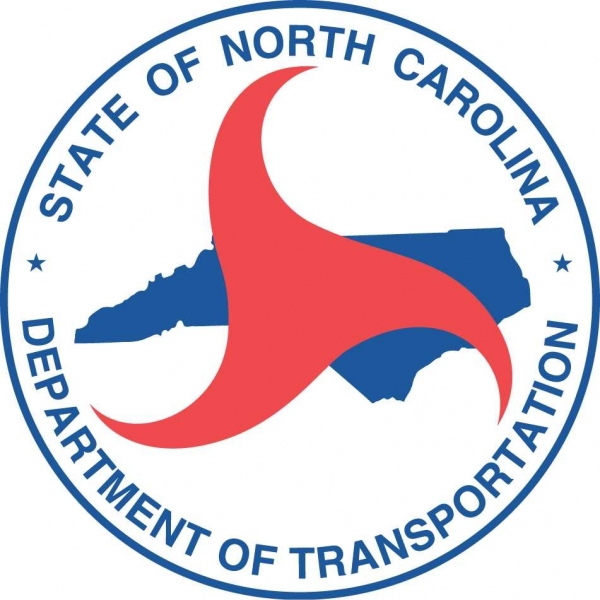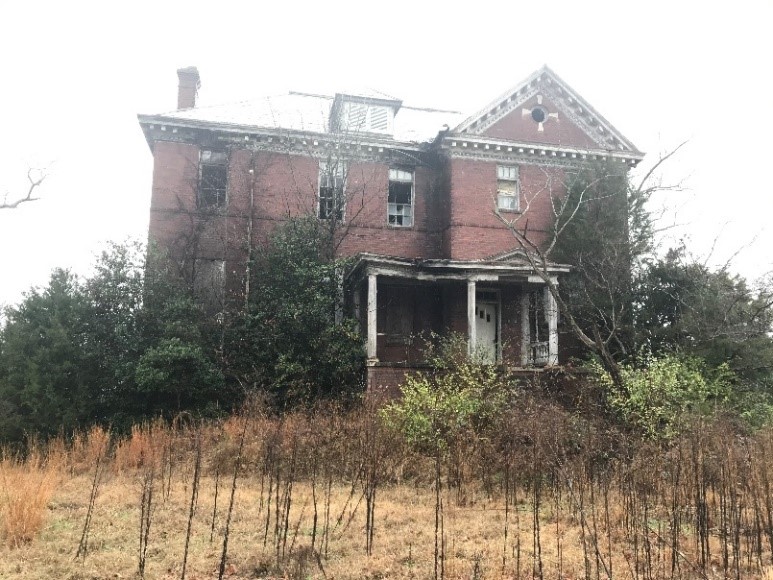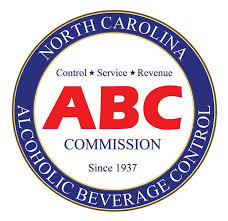
| Step Pay Plans Offer Remedy to Division of Adult Correction and Juvenile Justice Staffing Challenges (November 2020) 2020-11
The Division of Adult Correction and Juvenile Justice (ACJJ) faces staffing challenges that compensation incentive plans may help mitigate. The Program Evaluation Division identified areas of acute concern within ACJJ and constructed three step pay plans for Correctional Officers, outlined two ways in which Juvenile Justice could increase pay for Youth Counselor Technicians, and generated a broad compensation plan for all other ACJJ staff. This report does not contain recommendations but provides summaries of each plan and cost estimates. |
Final Report
Report Highlights
Presentation
Report Video Brief
|

| Options for Reorganizing the Division of Adult Correction and Juvenile Justice (November 2020) 2020-10
Session Law 2019-236 tasked the Program Evaluation Division (PED) with collecting and examining data on five structural reconfigurations of the Division of Adult Correction and Juvenile Justice (ACJJ) within the Department of Public Safety (DPS). Since 2012, ACJJ has been organizationally located within DPS. The division provides care, custody, and supervision for all adults and juveniles sentenced after conviction for violations of North Carolina law. Each reconfiguration of ACJJ analyzed in this study involves portions or all of the division either exiting DPS or becoming more independent within the department. As directed by the session law, the report does not endorse one option over other options but instead provides standalone and comparative information to allow legislators to determine which option, if any, would be appropriate to pursue. |
Final Report
Report Highlights
Presentation
Report Video Brief
|

| Lack of a Dedicated State-Level Effort Challenges North Carolina’s Capacity to Increase Teacher Diversity (November 2020) 2020-09
The Joint Legislative Program Evaluation Oversight Committee’s 2019–20 Work Plan directed the Program Evaluation Division to examine the effectiveness of North Carolina's current efforts to increase diversity in the teacher workforce. The directive required the Program Evaluation Division to explore whether other states are engaging in effective efforts and to report on any promising practices applicable to North Carolina. Although there is no dedicated state-level effort to promote the recruitment and retention of teachers of color, many local education agencies (LEAs), charter schools, and educator preparation programs (EPPs) within the state have developed and implemented initiatives to promote diversity in their teacher workforce. |
Final Report
Report Highlights
Recommendations
Report Video Brief
|

| Department of Transportation and Council of Internal Auditing Did Not Ensure DOT Compliance with Internal Audit Act (August 2020) 2020-08
Despite its internal audit unit being the second largest among state agencies, the Department of Transportation (DOT) has not maintained a robust and viable internal audit effort. DOT’s Office of Inspector General (DOT OIG) has not produced a performance audit since 2016. Performance audits could have detected and preempted severe DOT budget and cash control problems recently confirmed by the State Auditor. Further, the Council of Internal Auditing is not conducting compliance examinations of agency internal audit work products. Such an examination of DOT OIG by the Council could have identified problems and recognized omissions and deficiencies by comparing OIG work products to standards established by the Internal Audit Act of 2007. |
Final Report
Report Highlights
Recommendations
Presentation
|

| North Carolina Housing Finance Agency Can Improve the Effectiveness of Its Rental Development Programs (June 2020) 2020-07
The rental development programs of the North Carolina Housing Finance Agency (NCHFA) have created thousands of affordable rental units throughout the state. However, NCHFA does not have a strategy in place to address the increasing number of affordable housing units that may no longer be affordable upon exiting the Low-Income Housing Tax Credit (LIHTC) program at the end of the 30-year affordability period. In addition, the amenity policy that helps determine where LIHTC projects are located lacks a clear rationale and may prevent projects from being developed in otherwise high-opportunity locations. The Program Evaluation Division also identified administrative issues with two loan programs that help fund development projects—the Rental Production Program and the Workforce Housing Loan Program. |
Final Report
Report Presentation with Audio (YouTube)
|

| General Assembly Should Improve Oversight of Housing Finance Agency Funds and Expenditures (June 2020) 2020-06
The North Carolina Housing Finance Agency (NCHFA) is a public agency governed by a 13-member board. NCHFA’s independence from certain state government policies and controls over expenditures increases the risk of wasteful or unnecessary expenditures. In addition, several NCHFA statutory funds have limited oversight, which led to an improper use of funds in one instance. The largest fund, the North Carolina Housing Trust Fund is overseen by the North Carolina Housing Partnership, but oversight activity is limited. Further, in violation of its own procurement policy, NCHFA did not have a contract with the private attorney that it pays to serve as general counsel to its board. The General Assembly should clarify that NCHFA is subject to the State Budget Act, direct that statutory funds be transferred to the North Carolina Housing Trust Fund, and improve oversight of the North Carolina Housing Trust Fund. |
Final Report
Report Presentation with Audio (YouTube)
|

| North Carolina Housing Finance Agency Should Improve Performance Management and Reexamine How It Distributes Resources to Localities (April 2020) 2020-05
The North Carolina Housing Finance Agency (NCHFA) manages 16 programs and partners with the Department of Health and Human Services on 5 additional programs to address a range of housing needs for low- and moderate-income households. NCHFA uses a local partner funding model for some of these programs, which contributes to uneven implementation across the state. Beyond this programmatic issue, NCHFA has a limited strategic planning process and performance management system, hampering evaluation of the Agency’s programs. NCHFA is required to report to the General Assembly on several topics, but the required reports are incomplete and could be improved to provide more instructive information. |
Final Report
Report Presentation with Audio (YouTube)
|

| NC FAST Child Welfare Case Management Software Demonstrates Adequate Functionality but Poor Usability (June 2020) 2020-04
Session Law 2019-240 directed the Program Evaluation
Division (PED) to examine the functionality of Project 4 (P4), the
child welfare module of NC FAST. The Program Evaluation Division
found that P4 is functional but scores poorly on usability.
Implementation of P4 by the Department of Health and Human
Services (DHHS) has been challenged by a host of issues including
the absence of a state practice model, resource disparities,
insufficient training, and issues surrounding appropriations. |
Final Report (Updated June 12, 2020)
Recommendations
Presentation
Handout
|

| Conveying Historic Stonewall Jackson Campus to Cabarrus County and Selling Adjacent Surplus Property Would Ensure Preservation and Be State Revenue Neutral (April 2020) 2020-03
In 1907, the General Assembly established the Stonewall Jackson Manual Training and Industrial School to house troubled youth who had committed minor offenses. Manual Training School operations have given way to the Department of Public Safety’s Stonewall Jackson Youth Development Center, which serves the most serious youth offenders. Current operations use modern facilities, leaving the School’s original buildings abandoned. The original Stonewall Jackson Training School site is significant because of its history and architecture. Its historic significance has earned the property designation in the National Register of Historic Places. Despite the Training School’s historic value, most of its buildings have been condemned and recommended for demolition, which the State Construction Office estimates would cost the State $3.8 million. Conveying a portion of the Historic Stonewall Jackson campus to Cabarrus County and selling related surplus property reduces the State’s liability and can ensure the rehabilitation and preservation of the historic campus. |
Final Report
Presentation Slides
Handout
|

| Compromise Process for Resolving ABC Administrative Violations Lacks Policies and Procedures, Rationale, and Transparency, Resulting in Disproportionate Penalties (March 2020) 2020-02
The Alcoholic Beverage Control (ABC) Commission sets and enforces administrative penalties for alcohol-related violations to reduce potentially dangerous behavior and ensure compliance with state regulations. Recent changes to the administrative penalty structure and the severity of penalties provides an opportunity to examine how well the Commission is accomplishing these goals. The Program Evaluation Division found that administrative penalties are not proportional, lacking policies, procedures, and guidelines that would limit variance and subjectivity. The General Assembly should consider requiring the Commission to set guidelines that ensure penalties are proportional to offenses, increase transparency for permittees, and establish performance management criteria. |
Final Report
Report Highlights
Recommendations
Presentation
Handout
|

| Opportunities Exist to Further Ease Burdens on Military-Trained Applicants and Military Spouses in Obtaining Occupational Licensure (February 2020) 2020-01
Military veterans and their spouses face unique challenges in obtaining occupational licensure. The provisions of N.C. Gen. Stat. § 93B-15.1 are intended to ease these burdens. Use of the statute has increased since implementation, yet opportunities exist to further assist members of the military community as they transition to civilian life or undertake relocation. Specifically, North Carolina could begin providing expedited licensure for military spouses and boards could better disseminate information on military licensure provisions. Other potential legislative actions include directing licensing boards to collect and report information on military-trained applicants and military spouse applicants. |
Final Report
Report Highlights
Recommendations
Presentation
|

| Child Protective Services Intake Screening Lacks Consistency (November 2019) 2019-10
County social services workers receive referrals of potential child maltreatment at the community level. Workers screen each allegation to decide if a more in-depth assessment should be conducted. County offices vary substantially in the rates of initial referrals that are screened in or out. County Division of Social Services (DSS) directors surveyed by PED attributed this variation to differing local policies, lack of staff familiarity with intake screening procedures, and an absence of consistent and timely central guidance by the Department of Health and Human Services (DHHS). PED found that the current structured intake tool makes the reporting process lengthy and redundant and may also contribute to screening inconsistency. |
Final Report
Report Highlights
Recommendations
Presentation
|

| DEQ Working to Improve Organizational Structure and Permit Processes, But Targeted Adjustments and a Permit Performance Management System Are Still Needed (November 2019) 2019-09
At the agency level, the Department of Environmental Quality’s (DEQ’s) average span of control and total organizational layers in 2019 remain similar to 2016 levels. Five of DEQ’s 20 organizational units contain higher levels of narrow spans and more organizational layers than recommended, with the Division of Marine Fisheries presenting the greatest potential for structural issues. Although decentralization of permit processing enables units to meet varied permit requirements, granting such autonomy absent a permit performance management system limits DEQ’s ability to ensure processes are efficient and effective. DEQ’s Permitting Transformation Project offers a way to build such a system. |
Final Report
Report Highlights
Recommendations
Presentation
|

| Improvements Needed to Gauge Effectiveness and Expend State Funds Available for Postsecondary Financial Aid (October 2019) 2019-08
North Carolina provides state-supported educational financial aid to students seeking a postsecondary education through scholarships, grants, and educational loans. Through the State Education Assistance Authority (SEAA), aid programs and aid funds are administered and disbursed to students demonstrating financial need. The Program Evaluation Division found that state-supported educational financial aid promotes access and reduces costs but need still exists. Further, the effectiveness of educational loan programs intended to fill critical employment shortages is unclear and improvements could be made to assist the State in improving its ability to assess the outcomes of students who receive state support and attend private institutions. PED also found that SEAA faces long-term sustainability challenges in administering the UNC Need Based Grant. The General Assembly should modify state law to fully expend state-supported educational financial aid, direct increased reporting from private institutions, direct SEAA to improve internal practices, and consider appropriating program administration funds for the UNC Need Based Grant. |
Final Report
Executive Summary
Recommendations
Presentation
|

| Evaluation of Efficiency and Effectiveness of State Ports at Wilmington and Morehead City (October 2019) 2019-07
In Fiscal Year 2017–18, North Carolina ports in Wilmington and Morehead City collectively contributed $15.4 billion to the state economy and indirectly supported more than 87,000 jobs. The Program Evaluation Division (PED) found operations at the ports are generally effective and efficient, due largely to the performance of the Port of Wilmington and recent implementation of capital projects. PED also found operations at the ports are not duplicative. However, the Authority is not in compliance with statute requiring that containerized cargo shipping operations be conducted at both ports, has not implemented an environmental management system (EMS), and does not adequately assess service quality from its customers. The General Assembly should direct the Authority to establish strategies to address deficiencies at the Port of Morehead City, more comprehensively measure service quality, and report on the implementation of an EMS, and should additionally align the containerized cargo statute with operations at the ports. |
Final Report
Executive Summary
Recommendations
Presentation
|

| Follow-Up Memo on Disaster Recovery Funds Administered by the Department of Public Safety (June 2019)
In May 2019, as directed by Session Law 2018-5, Section 5.6(n), the Program Evaluation Division issued a report entitled Administrative Missteps and Lack of Expertise Led to Delays and $3.7 Million in Unnecessary State Spending for Hurricane Matthew Recovery. At its May 20, 2019 meeting, the Joint Legislative Program Evaluation Oversight Committee directed staff to conduct further research into Hurricane Matthew disaster recovery funds administered by the Department of Public Safety (DPS). Together, the 2016 and 2017 Disaster Recovery Acts placed responsibility for administering five funding streams with DPS. PED’s report showed that the only source of funds administered by DPS that was not reliant on another governmental entity and did not have available timeliness data was “$9,000,000…to develop, implement, and fund disaster assistance programs to meet the emergency sheltering and short-term housing needs of individuals affected by Hurricane Matthew, the western wildfires, and Tropical Storms Julia and Hermine.” DPS selected local governments and not-for-profits to receive this emergency sheltering and short-term housing funding. PED's review identified one recipient, the North Carolina Community Development Initiative (the Initiative), whose disbursement raises concerns about DPS’s administration and oversight of state funds awarded for disaster recovery efforts. This concern merited a followup review into DPS’s administration and the Initiative’s implementation of these funds. This review led to the identification of several issues, involving alignment of the use of funds with the legislative directive, initial selection and distribution of funds to the Initiative, enforcement of provisions with the contractual agreement, and maximizing assistance to hurricane survivors. |
Memo
Memo Presentation
|

| Recommendations for a 340B Correctional Partnership in North Carolina (May 2019)
In response to a recommendation in the Program Evaluation Division’s October 2018 report, Modifications to Inmate Pharmacy Purchasing and Monitoring Could Save $13.4 Million Annually, Session Law 2018-143 directed the Legislative Services Commission to contract for a consultant with expertise in the 340B program to prepare a proposal for the HRSA-compliant purchasing of inmate medications through a Disproportionate Share Hospital. The Legislative Services Commission engaged the Powers Law Firm to develop the proposal. The firm’s review of the information provided by stakeholders from the Department of Public Safety (DPS), Department of Health and Human Services (DHHS), and University of North Carolina Health System (UNC), combined with its understanding and analysis of 340B program requirements, led it to offer three recommendations which would allow DPS to partner with 340B program participants in order to maintain or improve care and significantly reduce drug costs for the North Carolina inmate population. First, the General Assembly should direct DPS to partner with DHHS to enroll in the 340B program as an STD sub-grantee and use the program to purchase medications, including HIV and Hepatitis C Virus (HCV) drugs, for the STD inmate population. Second, the General Assembly should direct DPS to issue a Request for Proposals for a partnership with one or more 340B hospitals to serve non-HIV/HCV inmates. Finally, the General Assembly should direct that DPS partner with UNC to receive 340B savings on non-HIV/HCV retail medications prescribed as a result of treatment provided at 340B-registered UNC locations. |
Final Report
Summary of Recommendations
|

| North Carolina Should Focus on Early Childhood Learning in Order to Raise Achievement in Predominantly Disadvantaged School Districts (May 2019) 2019-06
Using a national dataset of average test scores for school districts from 2009–2015, the Program Evaluation Division (PED) identified characteristics of predominantly disadvantaged districts that demonstrate average or better performance on standardized state tests; PED subsequently completed case studies of 12 such districts. PED found that the gap in achievement between predominantly disadvantaged districts and more advantaged districts is already present by third grade and that the small group of high-performing predominantly disadvantaged districts are already achieving these average or better test results in third grade. Thereafter, these districts maintain similar rates of student growth compared to other disadvantaged districts. PED found that high-achieving predominantly disadvantaged districts share several characteristics including focusing on early education; increasing or maximizing student learning time; attracting, developing, and retaining high-quality teachers; using data and coaching to improve instruction; seeking additional outside resources; and promoting a local school board focus on policy and academic achievement. The General Assembly should require districts that the State Board of Education identifies as low-performing to create an early childhood learning improvement plan as a component of their required plans for improvement, and should require an assessment of early childhood learning as part of the Department of Public Instruction’s comprehensive needs assessment process for certain low-performing districts. |
Final Report
Executive Summary
Recommendations
Presentation
|

| Administrative Missteps and Lack of Expertise Led to Delays and $3.7 Million in Unnecessary State Spending for Hurricane Matthew Recovery (May 2019) 2019-05
Hurricane Matthew delivered significant damage to 50 North Carolina counties in October 2016. In its aftermath, the General Assembly appropriated $300.9 million for disaster recovery across two acts. Additionally, the State received significant federal assistance, which included Community Development Block Grant-Disaster Recovery (CDBG-DR) funds. However, as of December 2018, the State had only spent 1% ($3.4 million) of its total CDBG-DR award ($236.5 million). Several issues delayed distribution of these funds, including non-compliant contracts (which resulted in the State spending approximately $3.7 million unnecessarily), limited institutional knowledge within state government, and program design issues and changes in implementation strategies. CDBG-DR funds can also be used as the non-federal share for various disaster recovery funds that require a state match when states demonstrate a need. However, General Assembly appropriations demonstrated the State could meet this need, thereby preventing it from using CDBG-DR funds to fulfill match requirements. The Program Evaluation Division also found information reported to the General Assembly on disaster recovery efforts is not performance-oriented and does not allow for comparison and identification of areas needing improvement. In response to these findings, the General Assembly should require DPS to establish mechanisms to ensure future CDBG-DR contracts are HUD-compliant, develop standardized performance metrics, and notify various entities when CDBG-DR might be used for matching purposes; consider a core number of DPS staff as permanent employees; and modify DPS’s statutory reporting requirements. |
Final Report
Executive Summary
Recommendations
Presentation
|

| Stream Restoration Projects Receive Duplicative State Funding and Inadequate Performance Management (March 2019) 2019-04
The Program Evaluation Division (PED) evaluated the efficiency and effectiveness of the grant application process for stream restorations administered by the Department of Environmental Quality’s (DEQ’s) Division of Water Resources under the Natural Resources Conservation Service’s Environmental Quality Incentives Program (NRCS-EQIP).The Western Stream Initiative (WSI) is the source of federal NRCS-EQIP funds used for stream restoration projects within 31 of the western counties in North Carolina. PED found that state funding for WSI projects has been duplicative, which occurred when two state sources—the Water Resources Development Grant (WRDG) program and the Clean Water Management Trust Fund (CWMTF)—provided funding for identical work activities within a single project. Additionally, PED found that data necessary to demonstrate the grant program’s efficiency and effectiveness are not being tracked or reported, and of the data that are tracked, performance trends show diminishing returns. Lastly, WRDG-EQIP grant award calculations do not rely on historical project cost data, which results in imprecise awards and potential overawarding of funding. The General Assembly should consolidate grant resources with either WRDG-EQIP or the CWMTF; direct the WSI grant administrator to improve performance management; and direct the State Auditor to perform an audit of state funds for WSI projects managed by Resource Institute. |
Final Report
Executive Summary
Recommendations
Presentation
Handouts
|

| Changing How North Carolina Controls Liquor Sales Has Operational, Regulatory, and Financial Ramifications (February 2019) 2019-03
Changing how North Carolina regulates liquor sales would require major adjustments. Ending government control of retail liquor sales would require decisions related to dissolving local alcohol beverage control (ABC) boards and closing ABC stores, determining regulatory requirements for private retail businesses to sell liquor, and developing an implementation schedule. Ending government control of wholesale liquor sales would further require establishing requirements for a private liquor warehouse and distribution system. The Program Evaluation Division identified three options that assumed local ABC boards would be abolished and local governments would no longer be responsible for operating local ABC stores. Pursuing any of these options would affect the ABC Commission, state and local government revenues, and liquor suppliers and consumers. In lieu of a complete overhaul, the State could choose to further modernize the current system to increase efficiency and profitability. If the General Assembly wishes to change North Carolina’s system for regulating liquor, it should appoint a joint legislative commission to determine how state and local government roles would change. If it wishes to modernize the current system, the General Assembly should direct local ABC boards located in counties with multiple boards to form merged ABC boards; eliminate the purchase-transportation permit for liquor; monitor the selection of a new ABC warehouse contract; and provide local ABC boards with more flexibility to charge delivery fees, serve special order customers, open ABC stores on Sundays, and offer in-store tastings of liquor products. |
Final Report
Executive Summary
Recommendations
Presentation
|

| Economic Development Partnership of North Carolina Should Increase Private Funding and Improve Formal Coordination with Department of Commerce (January 2019) 2019-02
The Department of Commerce created the Economic Development Partnership of North Carolina (the EDPNC) in 2014 to serve as North Carolina’s sales and marketing arm. The EDPNC is one variation of a public-private partnership, which involves a government entity contracting with a non-government entity to provide a public good or service. The Program Evaluation Division (PED) found that the EDPNC’s ability to allocate resources to vital activities is limited by restricted state appropriations and by private fundraising totals that are lower than those of comparable organizations in other states. Further, the EDPNC and the Department of Commerce lack effective coordination. Other issues noted by PED include the tourism division having minimal synergy with the rest of the EDPNC and the EDPNC operating without a strategic plan. To address these findings, the General Assembly should direct the EDPNC to increase private funding to $2 million per year and provide a matching incentive; charge the EDPNC and the Department of Commerce with engaging a facilitator; create a legislative commission to consider the best way to organize and manage the tourism division; and modify existing state law to specify that the EDPNC Board of Directors is responsible for creating an organizational strategic plan. |
Final Report
Executive Summary
Recommendations
|

| Opportunities Exist to Improve the Erosion and Sedimentation Control Program and Recover $1.7 Million in Annual Costs (January 2019) 2019-01
North Carolina’s Erosion and Sedimentation Control (E&SC) program is designed to allow development by minimizing erosion at construction sites and preventing off-site pollution from sedimentation. The Joint Legislative Program Evaluation Oversight Committee directed the Program Evaluation Division (PED) to examine the effectiveness and efficiency of the E&SC program and determine whether duplication exists between it and the federal National Pollution Discharge Elimination System (NPDES) program. PED found that the E&SC program fulfills requirements of the NPDES program and thus no duplication exists; additionally, it is not advantageous to merge oversight of the programs. PED also found that the E&SC program is not self-supporting; program fees cover less than 50% of expenditures and state appropriations help support program operations. Further, PED found that insufficient information management practices challenge continuous improvement. Based on these findings, the General Assembly should modify state law to outline reporting requirements for delegated programs and increase fees; direct the development of rules for inspections and amendment of Memorandums of Agreement with delegated local programs; and direct the Department of Environmental Quality’s Division of Energy, Mineral and Land Resources to improve its information management practices. |
Final Report
Executive Summary
Recommendations
|